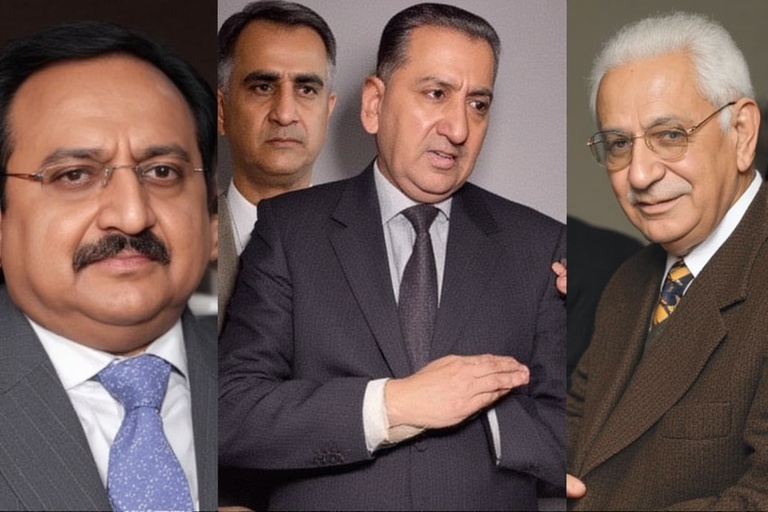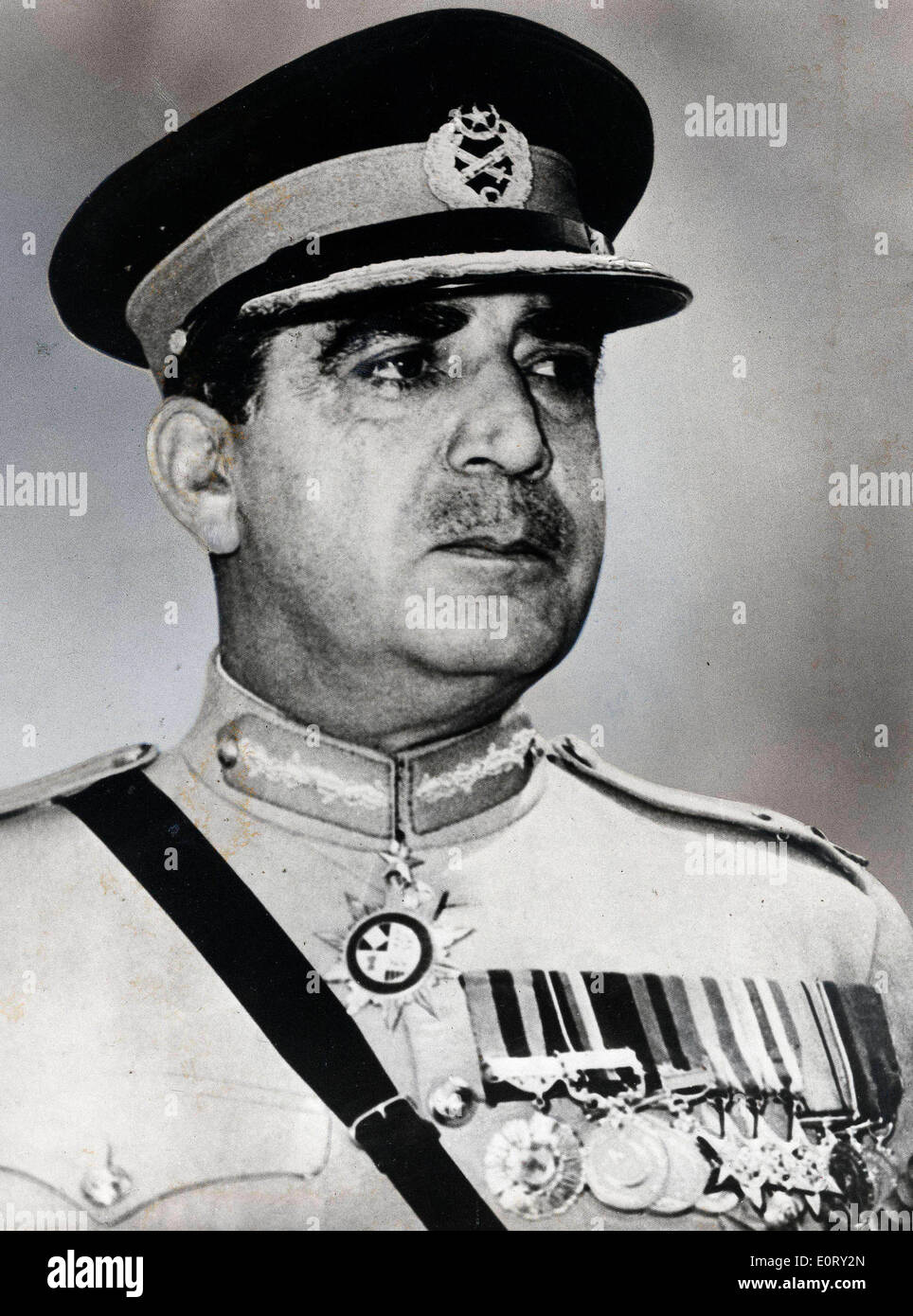
Ayoub Khan: Shaping Pakistan's Destiny
Ayoub Khan stands as a towering figure in Pakistan’s story. He transformed the young nation with bold vision and strong leadership. Moreover, he drove rapid growth and stability. However, his path sparked debates. Yet, his influence endures today.
Early Life and Military Career of Ayoub Khan
Ayoub Khan hailed from a modest background in a frontier village. He pursued education with determination. First, he studied at a local school. Then, he advanced to university. Finally, he trained at a prestigious military academy abroad. This foundation built his discipline.
en.wikipedia.org
Ayub Khan – Wikipedia
Additionally, Ayoub Khan joined the army early. He served in major conflicts. For instance, he commanded units during wartime. Furthermore, he rose through ranks quickly. Indeed, his skills earned promotions. Therefore, he became a top commander in the new nation’s forces.
Moreover, Ayoub Khan adapted to changes post-independence. He opted for the emerging country. Next, he led divisions effectively. Besides, he handled administrative roles. Consequently, leaders noticed his talents. Thus, his career set the stage for greater roles.
Ayoub Khan’s Rise to Power
Political instability gripped the nation. Ayoub Khan stepped in decisively. Initially, he supported martial law declaration. Then, he assumed control as administrator. Subsequently, he ousted the existing leader. So, he became president through a swift move.
Furthermore, Ayoub Khan justified his actions. He promised order and progress. In addition, he gained military backing. However, critics questioned the legality. Nevertheless, he consolidated authority rapidly. As a result, a new era began under his rule.
Besides, Ayoub Khan organized a referendum. Voters confirmed his position overwhelmingly. Moreover, he focused on governance reforms. Yet, opposition voices emerged. Still, he maintained firm control. Therefore, his presidency marked a shift in leadership style.
Economic Reforms Under Ayoub Khan
Ayoub Khan launched ambitious economic plans. He promoted industrialization vigorously. For example, he encouraged private investments. Additionally, he built infrastructure like dams. Consequently, production surged across sectors. Thus, growth rates climbed impressively.
researchgate.net
Economic growth under different rulers of Pakistan. Source: World… | Download Scientific Diagram
Moreover, Ayoub Khan introduced agricultural changes. He distributed land to farmers. Furthermore, he adopted new technologies. As a result, yields increased dramatically. However, benefits concentrated among elites. Nevertheless, the “Green Revolution” boosted food security.
In addition, Ayoub Khan liberalized trade policies. He attracted foreign aid effectively. Besides, he established refineries and plants. Therefore, jobs multiplied in urban areas. Yet, regional disparities grew. Still, his era earned praise for economic momentum.
| Economic Sector | Key Reforms | Outcomes |
|---|---|---|
| Agriculture | Land redistribution, new seeds | Higher yields, self-sufficiency |
| Industry | Privatization, factories | Job creation, GDP growth |
| Infrastructure | Dams, power stations | Energy boost, development |
Furthermore, Ayoub Khan emphasized planning. He set up development boards. Consequently, investments flowed in. However, corruption allegations surfaced. Nonetheless, statistics showed progress. Thus, his policies laid industrial foundations.
Ayoub Khan’s Foreign Policy Strategies
Ayoub Khan navigated complex global relations. He aligned with Western powers initially. For instance, he joined defense pacts. Additionally, he secured military aid. Therefore, security strengthened against threats. Yet, shifts occurred over time.
britannica.com
Mohammed Ayub Khan | Biography, Reforms, & Martial Law | Britannica
Moreover, Ayoub Khan warmed ties with China. He resolved border issues peacefully. Furthermore, he signed agreements beneficially. As a result, trade expanded. However, this strained other alliances. Nevertheless, balance served national interests.
In addition, Ayoub Khan managed India relations tensely. Conflicts arose over disputed areas. Besides, he sought diplomatic solutions. Consequently, ceasefires followed hostilities. Yet, outcomes divided opinions. Still, his approach influenced future policies.
Furthermore, Ayoub Khan engaged the Soviet Union. He pursued neutral stances occasionally. Therefore, aid diversified sources. However, Cold War dynamics challenged him. Nonetheless, his diplomacy enhanced global standing.
Domestic Policies and Ayoub Khan’s Constitution
Ayoub Khan reformed governance structures. He introduced a new constitution. Initially, it centralized presidential powers. Then, it limited legislative roles. Subsequently, it aimed for stability. So, administration streamlined operations.
Additionally, Ayoub Khan created local democracy systems. He established councils at grassroots levels. Furthermore, citizens participated in decisions. As a result, rural voices gained platforms. However, critics saw control mechanisms. Nevertheless, it fostered engagement.
Moreover, Ayoub Khan addressed social issues. He promoted education initiatives. Besides, he encouraged women’s rights subtly. Therefore, literacy rates improved slightly. Yet, implementation varied regionally. Still, his policies pushed modernization.
In addition, Ayoub Khan curbed political activities. He restricted opposition parties. Consequently, stability prevailed temporarily. However, resentment built up. Nonetheless, his framework influenced later systems.
Challenges During Ayoub Khan’s Rule
Ayoub Khan faced growing unrest. Protests erupted over inequalities. For example, students led demonstrations. Additionally, political figures opposed him. Therefore, pressure mounted intensely. Thus, his authority weakened gradually.
Furthermore, Ayoub Khan dealt with war aftermaths. Losses affected public morale. Moreover, economic gaps widened discontent. As a result, calls for change amplified. However, he attempted dialogues. Nevertheless, turmoil escalated.
Besides, Ayoub Khan encountered health issues. Rumors spread about his condition. Consequently, leadership questions arose. Yet, he resisted initially. Still, circumstances forced reconsideration. Therefore, transition became inevitable.
Ayoub Khan’s Legacy and Criticisms
Ayoub Khan left a complex legacy. He modernized the economy effectively. For instance, infrastructure endures today. Additionally, he stabilized early governance. Therefore, admirers hail his vision. However, detractors highlight flaws.
alamy.com
Pakistan President Ayub Khan in a military uniform Stock Photo – Alamy
Moreover, criticisms focus on authoritarianism. He suppressed dissent harshly. Furthermore, wealth concentrated among few. As a result, inequalities persisted. Yet, his era spurred growth. Nevertheless, it sowed division seeds.
In addition, Ayoub Khan’s foreign shifts drew mixed views. Alliances benefited security. Besides, they invited dependencies. Consequently, policies evolved post his rule. However, his diplomacy set precedents.
Furthermore, Ayoub Khan influenced military roles in politics. His coup opened doors for interventions. Therefore, patterns continued. Yet, supporters argue necessity. Still, debates rage on impacts.
| Aspect | Positive Legacy | Criticisms |
|---|---|---|
| Economy | Rapid growth, industrialization | Inequality, elite favoritism |
| Politics | Stability, reforms | Authoritarianism, suppression |
| Foreign | Alliances, balance | Dependencies, conflicts |
Ayoub Khan’s story offers lessons. He drove progress amid challenges. Moreover, his decisions shaped trajectories. However, balances proved elusive. Nonetheless, understanding his role enriches history.
Dive deeper into Ayoub Khan’s era. Explore more resources on Pakistan’s leaders. Share your thoughts and join discussions today!







